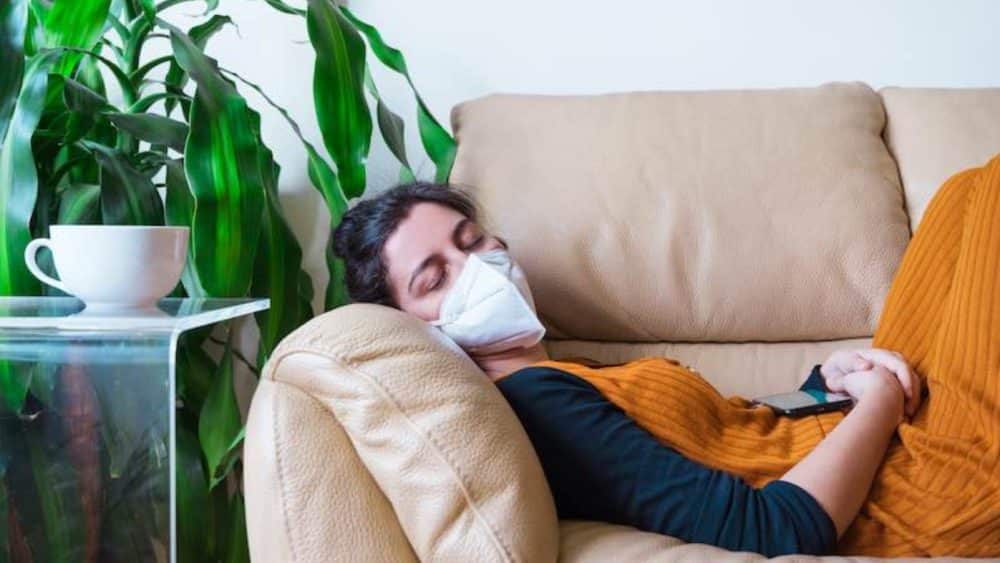Various studies from around the world show that in addition to better-known symptoms like difficulty breathing and brain fog, long COVID patients frequently suffer from insomnia and other sleep problems.
Coughing so hard it’s difficult to breathe. Shivering with chills or sweating with a fever. Worrying about who you might have sneezed at over the past three days. There is no shortage of reasons for why people with COVID-19 might have trouble sleeping.
But according to several studies, sleep problems in patients with coronavirus infections can persist after the acute phase of the disease is over as well.
Various research teams from around the world have looked into how people who had COVID or who suffer from long COVID sleep, and found that many reported so-called “sleep disturbances.” The term refers to problems with drifting off to the land of dreams or with staying asleep through the night.
The most well-known of these issues is insomnia. Those who suffer from it take a long time falling asleep, rise multiple times during the night or wake up early in the mornings.
Sleep problems during and after coronavirus infection
Studies show sleep problems after COVID exist on a population level. A meta-analysis of 250 studies comprising more than 493,000 participants from 49 countries found that 52% of people with COVID-19 suffer from sleep disturbances during the infection.
Again, not surprising ― but still relevant information for a COVID patient lying awake at night, frustrated that sleep eludes her when she needs the rest most.
As anyone who has googled their COVID symptoms knows, “you are not alone” is sometimes a comfort, even though it doesn’t help ease said symptoms.
It’s not just those in the acute phase of the disease that suffers. In an observational study from 2022, US researchers fitted 710 study participants with wearable health devices that recorded their respiratory and heart rates, oxygen saturation, and heart variability, among other factors.
Using these variables, they discovered that the 122 long-COVID patients not only got less sleep time in a night compared to the 588 control group participants who had not had COVID but that their sleep quality was lower too.
In another study, published in the journal e-Clinical Medicine, researchers sent out online questionnaires and surveyed 3762 participants from 56 countries who had suffered from long COVID between June and November 2020. Almost 80% of participants reported sleep disturbances, most frequently insomnia.
Whether physiological, psychological, or environmental factors (or a combination of those) are responsible for the lack of sleep and worse sleep quality varies from patient to patient.
Why does the lack of sleep matter?
A night with less sleep isn’t just an unpleasant experience that makes concentrating or even functioning as a human being harder the next day. Our bodies also use the time we spend in dreamland to regenerate ― and to strengthen our immune system’s ability to fight infections.
Sleep facilitates the redistribution of T-cells to lymph nodes in the body. T-cells are the white blood cells that play a central role in the immune response, releasing antibodies that kill virus particles.
Furthermore, preserving key memories and processing new information, as well as getting rid of excess information, all take place while we sleep. Sleeping after studying, for example, can turn information into memory that is stored in our brains. And sleep prepares our brains for learning new information the following day, according to the independent Sleep Foundation run by US researchers and doctors.





















